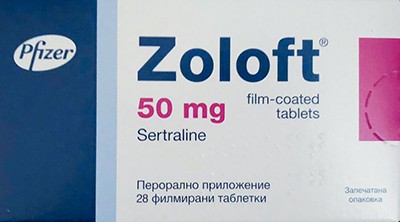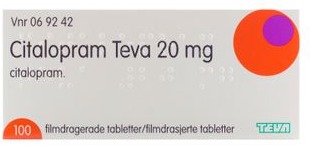Overview
Anxiety is a normal human emotion. Many people worry about things like health, money, or relationships from time to time.
But generalized anxiety disorder (GAD) is more than just “normal” anxiety. It’s a mental health condition that causes persistent, excessive worrying about a wide variety of problems — often out of proportion to the actual facts or events.
The truth is: People with GAD feel worried and anxious almost every single day. They can’t control their anxiety — to the point where it interferes with work, relationships, and other parts of daily life. GAD can also cause physical symptoms, like muscle tension and sleep problems. It can even make it hard to concentrate or think clearly.
Though there’s no cure for generalized anxiety disorder, there are good treatments and therapies. Understanding GAD as a mental health condition can help you get the right diagnosis and start to get your symptoms under control.
Causes
Anxiety disorders are very common. In fact, they are the most common mental illness in the United States. Almost 6% of U.S. adults will have generalized anxiety disorder at some point in their lives. But the truth is, we don’t know exactly what causes GAD.
Like other mental illnesses, the cause may be linked to your:
- Genes (DNA): Research shows that anxiety disorders run in families. This means if you have a family member with an anxiety disorder, you may be more likely to get one yourself.
- Biology: People with GAD may have changes in certain brain chemicals (like serotonin and dopamine) that can affect mood and anxiety.
- Environment: Anxiety disorders can be triggered by stressful life events. This can include traumatic experiences like death, violence, or medical problems.
In adults, GAD is more common in women than men. Anxiety disorders also often coexist with depression. In fact, over half of those diagnosed with GAD also have symptoms of major depression.
Symptoms
The hallmark of generalized anxiety disorder is constant fear or worry. People with GAD can also have physical and emotional symptoms.
All people with GAD share these symptoms:
- Feeling very anxious or worried almost every day
- Having fear about a wide variety of everyday things (like work, money, relationships, and health) or about bad things happening in the future
- Being unable to control the anxiety and worry
People with GAD can also have some — or all — of the following symptoms:
- Feeling restless or “on edge”
- Quick to experience fatigue
- Concentration problems
- Irritability
- Muscle tension
- Sleep problems
These symptoms can make it hard to cope with daily life. People with anxiety often withdraw from social events and relationships. They may also have trouble at work, school, or in other parts of their life.
Treatment
Diagnosis
If you’re concerned about generalized anxiety disorder, talk to your healthcare provider — especially if you’ve been struggling with symptoms for more than a few months. You can also start by checking out Mental Health America’s anxiety test to see if it makes sense to ask for professional help.
When you meet with a provider, they will ask you about your symptoms and medical history. They may also ask you to fill out a special questionnaire that can help them understand your condition. Your provider will use this information to decide whether you might have GAD. In many cases, they may also use a guidebook called the DSM-5 to confirm the diagnosis.
Your provider might also suggest a physical exam or blood tests. These can help rule out any physical causes of anxiety, like thyroid problems. Your provider might also refer you to a mental health professional like a psychiatrist or therapist for more specialized care.
Treatments
Therapy is a great treatment for generalized anxiety disorder — either on its own or combined with medications.
One of the most effective therapies for GAD is cognitive behavioral therapy (CBT). CBT is a type of therapy where you learn to identify, understand, and change your thoughts, feelings, and behaviors.
Working with a CBT therapist can help you:
- Learn to manage your anxious thoughts
- Learn coping skills to help you manage anxiety
- Confront and face your fears
Acceptance and commitment therapy (ACT) is another effective therapy for generalized anxiety disorder. This type of therapy focuses on mindfulness skills to help you step back from your anxious thoughts. Over time, you’ll learn that anxiety doesn’t have to control your decisions, even when you feel fear.
Connecting with others can also help you feel supported — and get better. Consider reaching out to an anxiety support group or peer network (either in-person or virtually) as part of your treatment plan.
Medications
If anxiety is causing you a lot of distress, it may be worth trying medication — especially if your symptoms make it difficult to go about your usual tasks or even seek treatment. For many people, anxiety is treated with a combination of medication and therapy.
Medications that are used to treat generalized anxiety disorder include:
These medications are only available with a prescription. Some are designed to be taken daily to gradually decrease your overall anxiety. Other medications can be used “as needed” for quick relief.
Some people only take medication for a few months, then stop. Other times, people take medication long term.
Talk to your healthcare provider about what options may be right for you. Keep in mind that it may take a little while to find the right medication. People respond in different ways to medications. You may need to try a few things before you find what works best for you.
Living
In addition to medication and therapy, you can also support your mental health and manage anxiety by:
- Getting good-quality sleep
- Exercising regularly
- Having a good support network
- Cutting down on caffeine and alcohol
- Eating a balanced diet
- Being kind to yourself
Some people also find home remedies helpful, including:
- Weighted blankets
- Essential oils
- Vitamins and supplements
- Herbal teas
- Mindfulness exercises
- Yoga
You may find that some strategies work better than others. You might have to experiment with different approaches to find the best tools for managing your anxiety symptoms.
And remember: Always check in with your healthcare provider before making any changes to your diet or exercise routine or before starting any herbs or supplements.
Medications & Collections
These drugs are vital for controlling and improving the health of individuals with this condition. They include both preventive and symptomatic treatments.

Zoloft 50mg
₦5,300

Citalopram 20mg
₦3,300
